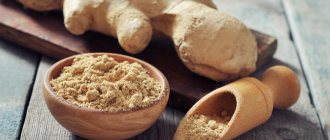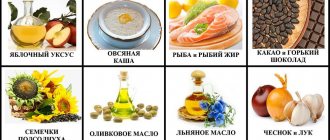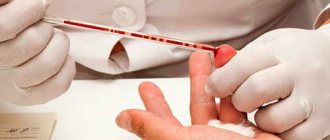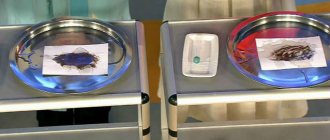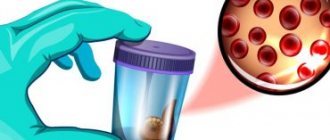Blood is the fluid that provides life to the body. It consists of plasma, erythrocytes (red blood cells), platelets and leukocytes. When the blood thickens, which signals problems in the body - from hypovitaminosis to stress, the heart, other organs and tissues do not receive oxygen and nutrition on time. Blood that is too thick forces the heart to work harder and can lead to hypertension, blood clots, clogged blood vessels, hemorrhages and death.
There are many foods that can naturally thin the blood and help reduce the risk of blood clots, and here are 10 of them.
Ginger
Ginger
Ginger is an anti-inflammatory spice that thins the blood. It contains a naturally occurring acid called salicylate. Aspirin (acetylsalicylic acid), which is recommended to be taken to thin the blood, is a synthetic derivative of salicylate. For the anticoagulant effect of natural salicylates, you can regularly eat fresh or dried ginger, adding it to baked goods, drinks, and a variety of dishes. But, of course, this natural anticoagulant is not as effective as blood thinners.
Products that thin thick blood
If you have thick blood, there are certain foods that should be included in your diet.
Fruits and vegetables
- Garlic. A powerful antioxidant with a whole range of beneficial properties. Relieves inflammation, promotes the resorption of blood clots, stabilizes blood viscosity. Must be consumed fresh.
- Tomatoes. They contain the substance lycopene, which reduces the concentration of cholesterol in the body.
- Persimmon. A long-known anticoagulant that thins the blood, prevents the formation of blood clots, and reduces cholesterol levels in the body. Contains a lot of antioxidants that cleanse the digestive system.
- Cabbage. Can be consumed both fresh and fermented. Contains vitamins B and C, which normalize metabolism and improve blood quality.
- Pomegranate. Rich in potassium, necessary for the normal functioning of the cardiovascular system. Protects the walls of blood vessels and prevents their stretching.
Berries
- Raspberries. The berries contain the same active ingredient as aspirin. Only tablets have a negative effect on the body, but raspberries do not. Eat it fresh, as part of jam, or drink decoctions from the leaves.
- Blueberry. Rich in flavonoids, which have a beneficial effect on the condition of the walls of blood vessels.
Herbs and spices
- Ginger, cinnamon, turmeric, celery. They contain coumarin, which effectively thins the blood and prevents the development of thrombosis.
- Mint. It has a beneficial effect on the gastrointestinal tract and contains salicylates that affect blood clotting.
- Oregano. Add a pinch of crushed leaves to dishes when cooking to help the body regulate blood viscosity.
- Paprika. It has a warming effect, accelerates metabolism, has a positive effect on the condition of the blood, and prevents the formation of thrombosis.
- Liquorice. It is used as a medicinal and prophylactic agent for varicose veins, thrombosis, and atherosclerosis.
- Thyme. Like mint, it is rich in salicylates, which help the body control water balance.
Drink
- Water. We consist of 90% of it, and the body vitally needs normal water balance.
- Green tea. Contains a lot of antioxidants that prevent cardiovascular problems. It has a diuretic effect, resulting in the removal of waste and toxins from the body. It is better to drink tea in the morning, because it contains caffeine.
Other useful products
- Fatty fish. Contains a lot of useful substances that prevent the appearance of atherosclerotic plaques.
- Seaweed and other seafood. A high concentration of iodine not only normalizes blood viscosity, but also has a beneficial effect on vascular tone.
- Honey. It has a beneficial effect on the condition of the blood and prevents the formation of blood clots. Because It is high in calories, the permissible consumption rate is 1 tablespoon per day.
- Linseed oil. Contains healthy vegetable fats that restore the elasticity of vascular walls.
Olive oil
Olive oil
Consuming olive oil at least once a week reduces platelet activity, thanks to the antioxidants contained in the oil. The study found that people who consumed extra virgin olive oil, which is high in phenolics, had lower levels of blood clot-promoting substances. Just don’t heat-treat olive oil, as it loses its beneficial properties. Add it to salads, sauces, dip bread in it.
Fish
Salmon
Fatty sea fish can help in the fight against blood clots. Do not be afraid of this fat - due to its high content of omega-3 polyunsaturated fatty acids, it only brings benefits: platelets lose the ability to adhere to each other, the process of their accumulation in the vessels is suppressed, the blood thins and blood clots dissolve.
To achieve this effect, you need to eat about half a kilo of sea fish a week, preferably wild, but almost all salmon today are raised on aqua farms and do not “fed up” much omega-3. Unfortunately, fish is the only source of those omega acids that help thin the blood. Therefore, if you cannot eat fish often, add natural fish oil or seaweed oil to your diet. The latter is equivalent in omega index to cooked fish - after all, fish synthesizes omega acids from algae.
Symptoms indicating blood thickening
Doctors identify 8 main signs indicating problems with blood circulation:
- Periodic tingling in the limbs. They are often accompanied by a feeling of numbness. This is a key sign that blood does not penetrate well into the capillaries. As a result, the hands and feet are constantly cold, with a bluish tint.
- Gradual deterioration of vision and hearing. Problems with blood supply affect the key senses of perception of the world around us. Another sign is tinnitus.
- When cuts occur, the blood flows slowly and is dark in color.
- Drowsiness, frequent yawning. Due to problems with blood circulation, the body experiences oxygen starvation. Sleep becomes restless, anxious, intermittent. Even while awake, you feel a loss of strength, lethargy, and fatigue. This condition is also called chronic fatigue syndrome.
- Unreasonable muscle pain, weakness in the body. The pain syndrome is often localized in the back of the head, shoulders, and upper back.
- Labored breathing. It is difficult for the heart to pump viscous blood, which causes arrhythmia, which causes shortness of breath.
provokes arrhythmia, which causes shortness of breath. If you experience one or more signs, you should consult a doctor and undergo a comprehensive examination. You will need to undergo tests and other studies as directed by a specialist.
A pineapple
Pineapple baked with pepper, recipe here
The tropical fruit contains a special protein-breaking enzyme, bromelain, which is considered an effective remedy for cardiovascular diseases and high blood pressure. Research shows that bromelain can thin the blood, break up blood clots, and reduce their formation—include pineapple in your diet if you want to prevent thickening of your hair. Bromelain also has anti-inflammatory properties.
Cassia or cinnamon
Spicy cassia
Some blood thinners are made with a substance called coumarin. Coumarin is found naturally in cinnamon. By the way, Chinese cinnamon or cassia has a much higher coumarin content than regular cinnamon. Add small amounts of the spice daily when preparing foods and drinks, but be careful if you use other natural blood thinners.
Garlic
Garlic
Garlic has natural antibacterial and antimicrobial properties, as well as anticoagulant activity and reduces the formation of blood clots. The best way to reap the benefits of garlic is to crush the cloves with the flat of a knife to “release” the beneficial compounds, then eat the cloves raw or quickly roast them in the oven.
Sea kale
Sea kale salad, recipe here
Sea kale (aka kelp) and other types of algae are natural anticoagulants, thanks, among other things, to the large amount of iodine they contain. Including seaweed in your menu may benefit people with high blood pressure by increasing vascular tone and reducing blood viscosity.
Why is it necessary to thin the blood during thrombosis?
Blood viscosity is a vital indicator. If there are problems with it, a number of serious pathologies may develop, including thrombosis, varicose veins and even stroke. Blood clots can partially or completely close the vascular bed, limiting blood flow and causing necrosis and gangrene. Blood clots slow down the supply of oxygen to various organs. Also, increased blood viscosity can lead to coronary artery disease or thromboembolism of the heart and lungs. This is an extremely serious condition that requires immediate treatment.
Water
Water is the main fighter against thick blood
If you don't drink enough water, dehydration sets in, which can cause your blood to thicken, increasing the risk of a blood clot. On average, you need to drink two liters of water a day, but no less. One way to check if you're on the right track is to test your urine. If it's pale yellow or clear, you're probably drinking enough, but if it's amber or darker, you need to increase your daily water intake.
Of course, people with certain medical conditions, such as congenital heart defects, may need blood thinners to reduce their risk of heart attack or stroke. If you have any health concerns, you should consult your doctor before introducing these foods into your daily diet, as they may interfere with some medications.
How to make blood more fluid and reduce the risk of blood clots - Om Activ
- The main cause of almost 90% of heart attacks and strokes are blood clots formed in the vessels due to increased blood viscosity.
Let's say right away: if you have cardiovascular disease or a predisposition to blood thickening, be sure to consult a doctor.
And if you get sick with something we don’t talk about, consult a doctor too. In both cases, adjusting the diet will not be enough (but you still need to do it to alleviate the condition). Conditions in which it is necessary to adjust the diet:
- all forms of coronary heart disease;
- thrombosis, accompanied by inflammation of the venous wall and the formation of a blood clot;
- postthrombotic disease;
- phlebothrombosis (formation of blood clots in the veins of the legs);
- phlebeurysm;
- acute and chronic venous insufficiency;
- PE (blockage of the pulmonary artery or its branches by blood clots);
- atherosclerosis (formation of atherosclerotic deposits in the lumen of the vessel, leading to the development of coronary heart disease);
- previous stroke and micro-stroke;
- transient ischemic attack;
- circulatory disorders;
- excess weight, especially against the background of diabetes;
- taking hormonal contraceptives for a long time;
- the presence of erythrocytosis and thrombocytosis.
- If you want to know the state of blood viscosity and identify a tendency to form blood clots, take a D-dimer test.
But in the fall and winter, everyone needs to adjust their diet.
How to do it.
- 1 Make sure you drink enough water.
Often the blood becomes viscous due to insufficient water intake. WHO recommends drinking at least 1.5–2 liters per day. If blood clotting is high, it is recommended to increase the rate to 2.5 liters.
- Formula for calculating daily water consumption
- 2 Limit your intake of foods that make your blood more viscous.
What makes blood more viscous are frankly harmful foods, which many have already excluded: alcohol, margarine, baked goods, refined sugar and processed foods.
- The exception is red wine. The therapeutic norm is not a bottle, but only 150 ml.
But there are also plant foods that thicken the blood: legumes, parsley, nettle, buckwheat, potatoes, chokeberry and white cabbage. There is no need to give them up, but partially replacing them with other products in the fall and winter will be useful.
- 3 Make sure you eat enough protein and fat.
You may now think that we are again not telling anything new. But this is precisely the idea we are trying to convey: all processes in the body take place with the participation of proteins and fats, therefore, to solve any problem, it is first necessary to provide the body with basic substances.
- Formula for calculating daily protein intake
The amino acids arginine and taurine are involved in hematopoiesis - they thin the blood and dilate blood vessels. There are a lot of them in seafood, so add them to your diet if possible - once or twice a week will be enough.
- Formula for calculating daily fat intake
Omega-3 fatty acids also take an active part in hematopoiesis - they are found in fish oil and some vegetable oils (linseed and sesame).
- 4 Eat blood thinning foods daily.
Among them are products containing vitamins C, E, P, group B (strengthen the walls of blood vessels), and minerals: iron, iodine, magnesium, potassium, manganese, calcium (reduce platelet aggregation).
Berries
Berries contain a lot of vitamins, antioxidants, minerals and natural acids that thin the blood.
The most useful berries for reducing blood density: red currants, raspberries, blueberries, cranberries, blackberries, strawberries. Raspberry leaf tea is also beneficial. It is only necessary to exclude chokeberry from the diet, since its fruits, on the contrary, thicken the blood.
We recommend consuming fresh berries without heat treatment.
Tomatoes
But tomatoes can be consumed in any form - fresh, canned, or heat-treated. This is the most useful vegetable for thinning the blood - in terms of its effect on the circulatory system, tomato juice is comparable to aspirin.
Therapeutic dose is 4 tomatoes per day.
Cabbage
Peking, Brussels sprouts and red cabbage thin the blood. And the white cabbage thickens. Sauerkraut along with cranberries is especially useful for these purposes.
Onion
Onions contain quercetin and adenosine, natural anticoagulants that dissolve blood clots and reduce platelet aggregation. The most beneficial substances for thinning the blood are found in red and yellow onions.
Garlic
Garlic can be consumed in any form: fresh, dried, in the form of garlic oil, and so on. It contains allicin, a substance that the body converts to achoene, a powerful anticoagulant.
Spices
Cayenne pepper contains salicylates, which improve blood circulation.
Turmeric regulates the content of leukocytes and red blood cells in the blood. According to the American Journal of Cardiology, regular consumption of turmeric reduces the risk of ischemic heart attack by 56% due to increased blood clotting.
Ginger contains gingerol, the chemical composition of which is similar to aspirin.
Cinnamon is also a powerful anticoagulant. The daily norm is up to 6 grams; in larger quantities it can harm the liver.
- Let us repeat: a diet to improve blood viscosity does not replace the treatment prescribed by a doctor. You've probably heard that one of the causes of complications with a virus, which we don't talk about, is the formation of blood clots in the pulmonary system or in the body as a whole. Such a diet really reduces risks, but does not guarantee anything - wash your hands, keep your distance and take care of your loved ones.
